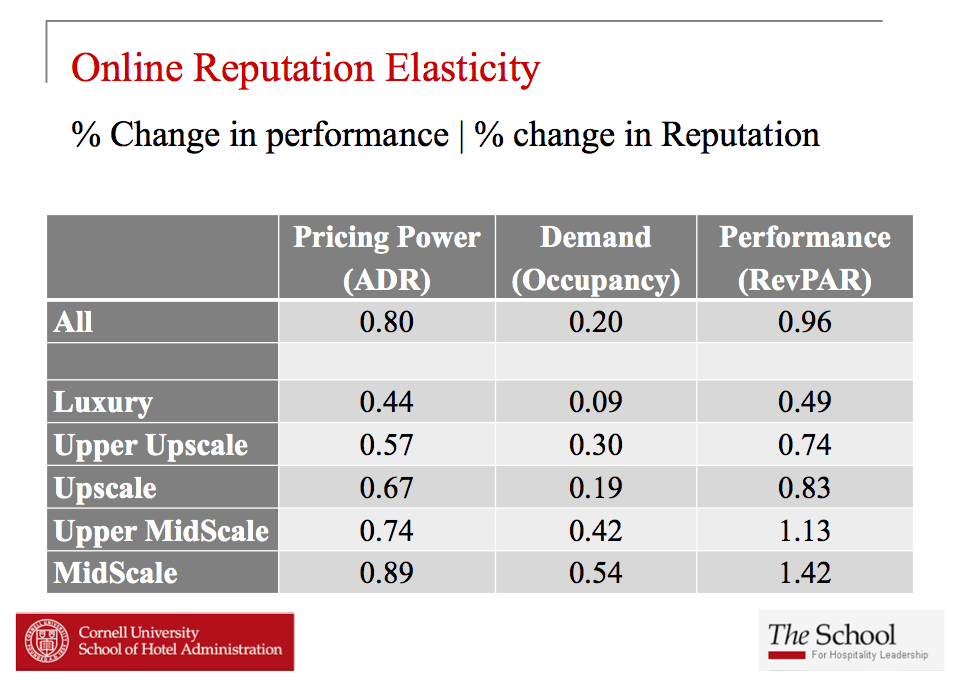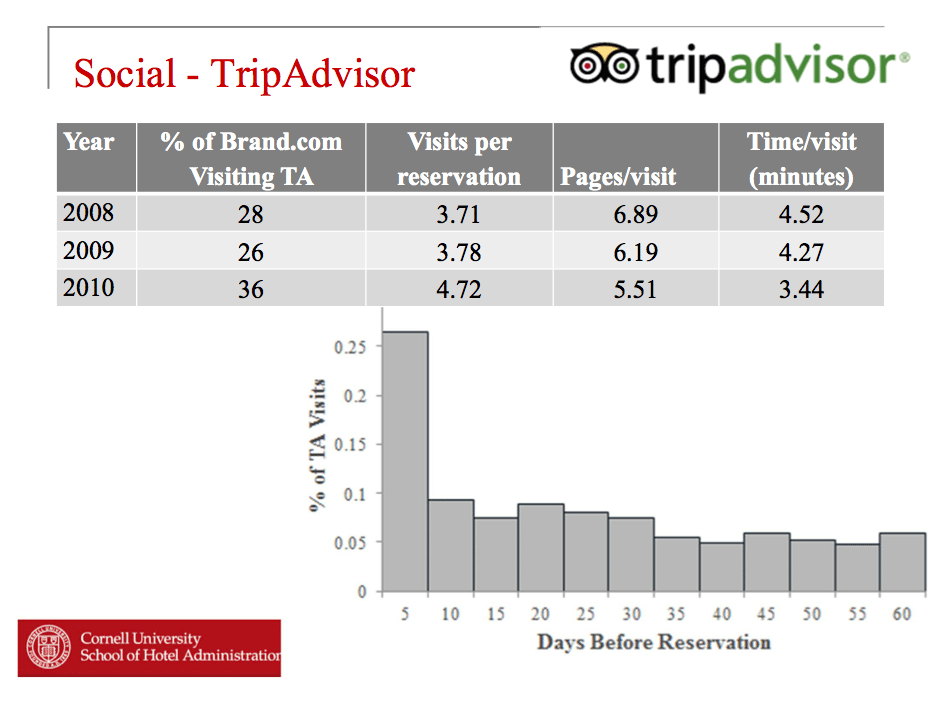User reviews impact bookings for economy hotels more than their luxury counterparts
Skift Take
The impact of positive user reviews on a hotel’s revenue increases as you move down the scale of hotels from luxury to the economy segment, reports a study to be released by the Cornell School of Hotel Administration at the end of this week. User reviews refer to ReviewPro’s aggregate user review score, which is a composite score across all review sites including TripAdvisor, Expedia, and Priceline.
The study led by Cornell professor Chris Anderson looked to find the potential impact that a 1 point increase (3.8 to 4.8) could have on a hotel’s bookings, REVPAR, and ADR. It found that improved reviews had the most significant impact on revenue and bookings for mid-scale and economy hotels.
The researchers attributed this finding to product standardization. “Online reputation is less influential for bookers looking at luxury hotels than those looking at the economy and mid-scale level. The product of a luxury hotel brand is relatively standardized. It delivers a superior product that is less likely to deviate from a guest’s expectation,” explains Anderson.

The researchers were surprised to find that the impact of positive user reviews didn’t vary between branded versus independent hotels or between locations in the U.S. versus Europe.
The study didn’t take into account the possibility that consumers frequenting a certain level of hotel are more likely to review than others.
Trends in TripAdvisor use
TripAdvisor is an example of one where site where users rely heavily on reviews before booking a hotel. The study also looked at consumers’ use of the site in the days leading up to a booking across all hotel segments. The amount of consumers and the number of visits increased between 2008 and 2010, but consumers also spent less time on the site and looked at fewer pages.
This suggests that the content became more efficient and trusted. The bulk of visits on TripAdvisor occurs within 5 days before the booking suggesting that travelers are narrowing down their choices and using the user-generated reviews as a major factor in their final booking decision.





